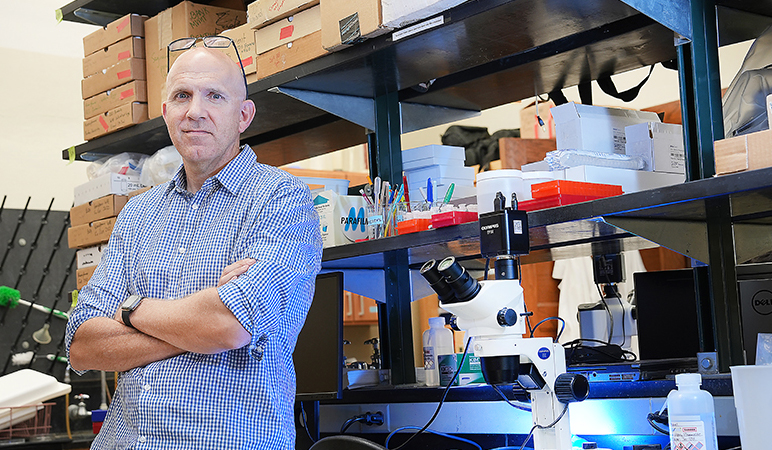
Scientists have learned over the years that when aquatic organisms such as zooplankton become exposed to microplastics, they eat poorly. Illinois-Indiana Sea Grant Director Tomas Höök was part of a study at Purdue University that shows that the zooplankton’s plastic-induced eating difficulties also limit its control of algal proliferation.
“Microplastics aren’t just having an effect on consumer organisms. They also have the potential to release algae from predatory control,” Höök said.
When the researchers noticed increased algal densities in their laboratory experiment after adding higher microplastic concentrations, they were uncertain about its cause. Either the microplastics were getting in the way of zooplankton and preventing normal consumption rates of algae, or they served as better surfaces for algal growth.
Follow-up tests showed that adding microplastics without the zooplankton failed to increase algae production. The microplastics were somehow affecting predation on algae. “That was somewhat surprising,” noted Chris Malinowski, director of research and conservation at the Ocean First Institute.
Read the rest of this story on the Purdue College of Agriculture news site. The research was published in Science of the Total Environment.

